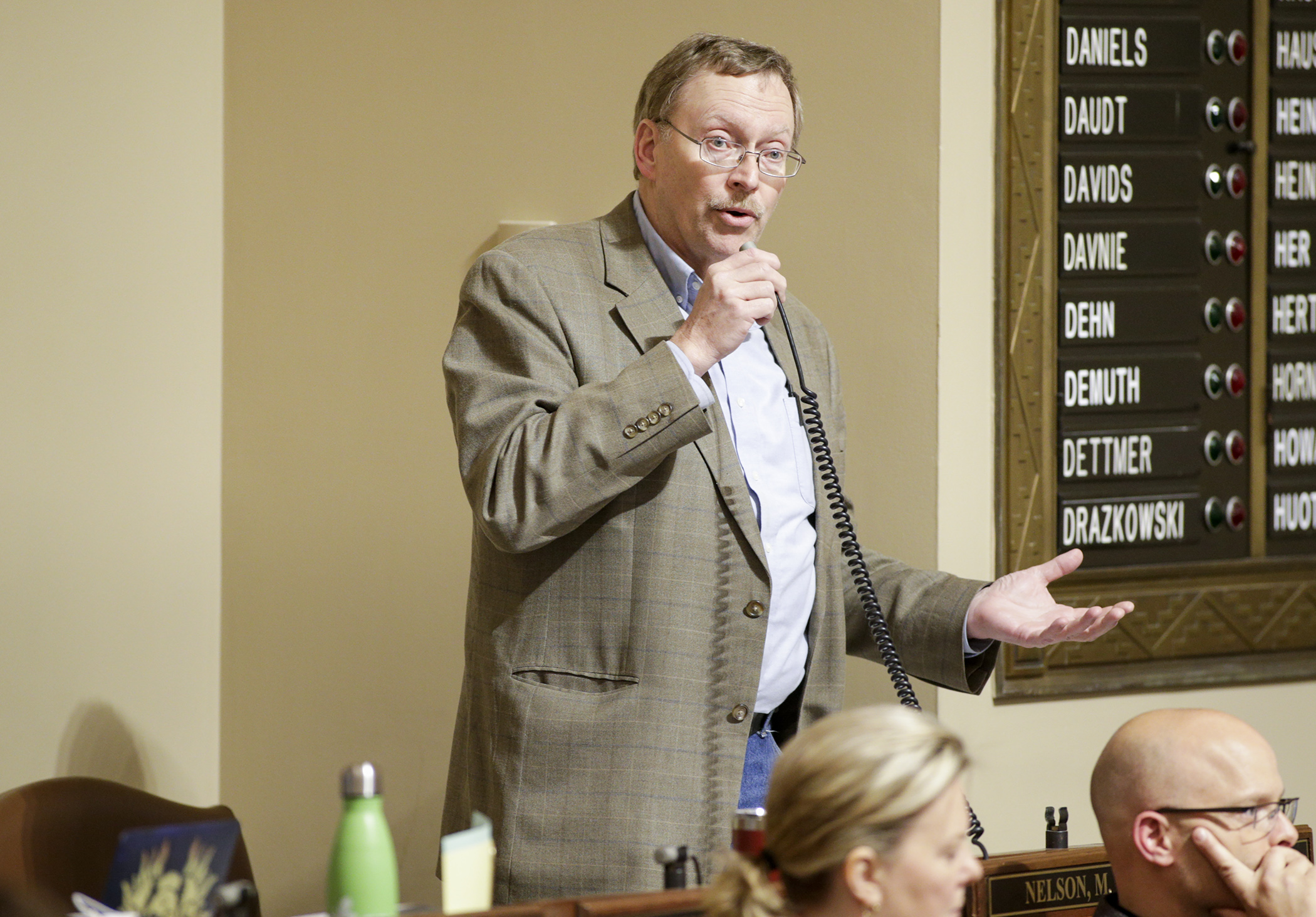Omnibus state government bill going to governor has $60 million base increase

Election security funding is in. So are operating increases for many state departments and ethnic councils. The Legislature, too.
All are part of the omnibus state government, military affairs, and veterans affairs finance bill passed 77-49 by the House and 65-2 by the Senate after sunrise Saturday.
Sponsored by Rep. Michael Nelson (DFL-Brooklyn Park) and Sen. Mary Kiffmeyer (R-Big Lake), the bill calls for nearly $1.16 billion in spending, a compromise that falls in the middle of what the three parties were seeking. The House sought nearly $1.2 billion; Gov. Tim Walz called for $1.18 billion; and the Senate $1.07 billion. The agreed upon 2020-21 biennial number represents a $60.54 million base increase.
[MORE: View the spreadsheet, bill summary]
Among the funding increases would be:
- $23.36 million for the Legislature, including $11.5 million for the House and $6.3 million for the Senate for costs associated with redistricting, technology increases, replacement of outdated equipment, mandated member raises and office space build out in the State Office Building;
- $10 million for cybersecurity enhancements across state government;
- $3.32 million for the Office of the Secretary of State, of which, $2 million would be for election equipment grants;
- $2 million for the Department of Military Affairs to sustain state enlistment incentive and retention bonus programs, such as tuition reimbursement;
- almost $1.95 million to help the Office of the Attorney General maintain and stabilize experienced staff, who make less than other public law offices, such as county attorney staff;
- $1.6 million would go the Department of Administration to implement a Census 2020 Mobilization program;
- $500,000 to expand Minnesota Service Core that provides free essential, community-based services directly to veterans and their families; and
- $141,000 would reimburse Becker and Wright counties for legal costs to successfully defend themselves in a lawsuit by former State Auditor Rebecca Otto.
Authorization for the state to accept $6.6 million in federal Help America Vote Act funds is included to assist beefing up the state's election security efforts.
Entering the 2019 session, both parties said it was something that should be acted upon early. The House bill, HF14, would have appropriated the full amount, but the Senate bill, SF241, would appropriate only $1.5 million and would have required the secretary of state’s office to report on inactive voters who registered on Election Day and were potentially ineligible to vote.
Another election change would prohibit publicly available information on voter registration to include the party choice of a voter who voted in a presidential nomination primary. Current statute requires a county auditor to make publicly available a list that includes the party choice of anyone who voted in the most recent presidential nomination primary. However, a list of voters corresponding to each party would be provided to each major political party.
“Minnesotans have set the bar high when it comes to civic engagement. This budget lives up to that high standard, investing in election accessibility and security to make sure that every voice is counted, and that Minnesotans’ privacy is preserved,” Nelson said in a statement.
Policy in the agreement includes:
- establishing May 14 each year as Hmong Special Guerilla Units Remembrance Day, June 30 as American Allies Day, the first Saturday of every October as Veterans Suicide Awareness Day and the third Friday in September as Prisoners of War and Missing in Action Recognition Day;
- requiring MNIT Services to review cloud computing service options when evaluating information technology projects proposed by state agencies;
- provides the practice of hair braiding is not subject to regulation or oversight by the Board of Cosmetologist Examiners;
- establishing the Legislative Commission on Housing Affordability;
- creating an advisory task force to review and report to the Legislature on strategies for attracting and retaining state employees with disabilities;
- allowing all counties to make the county auditor, treasurer, recorder or treasurer-auditor appointed, rather than elected; and
- ratifying the state’s labor contract with the Minnesota Law Enforcement Association for the contract period ending June 30, 2019, and the salary administration plan for the State Board of Investment.
Related Articles
Search Session Daily
Advanced Search OptionsPriority Dailies
Ways and Means Committee OKs proposed $512 million supplemental budget on party-line vote
By Mike Cook Meeting more needs or fiscal irresponsibility is one way to sum up the differences among the two parties on a supplemental spending package a year after a $72 billion state budg...
Meeting more needs or fiscal irresponsibility is one way to sum up the differences among the two parties on a supplemental spending package a year after a $72 billion state budg...
Minnesota’s projected budget surplus balloons to $3.7 billion, but fiscal pressure still looms
By Rob Hubbard Just as Minnesota has experienced a warmer winter than usual, so has the state’s budget outlook warmed over the past few months.
On Thursday, Minnesota Management and Budget...
Just as Minnesota has experienced a warmer winter than usual, so has the state’s budget outlook warmed over the past few months.
On Thursday, Minnesota Management and Budget...